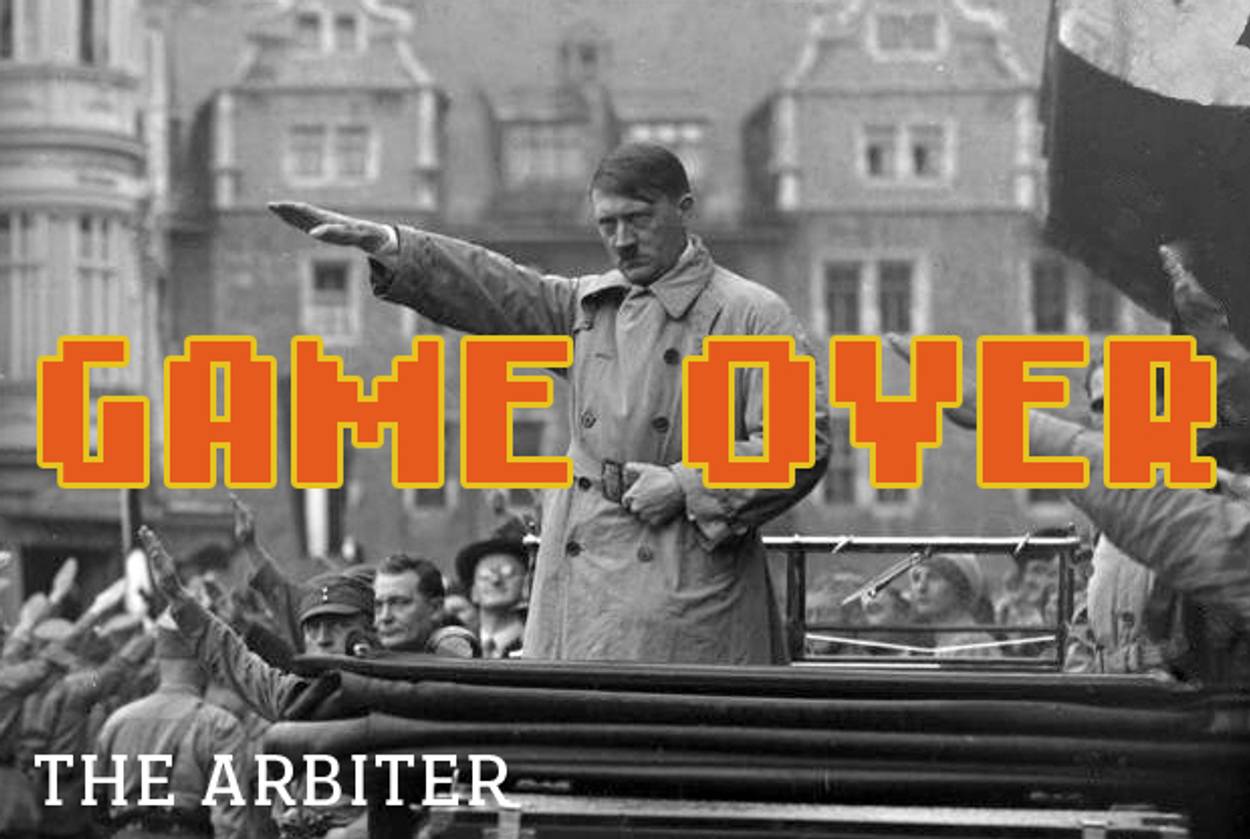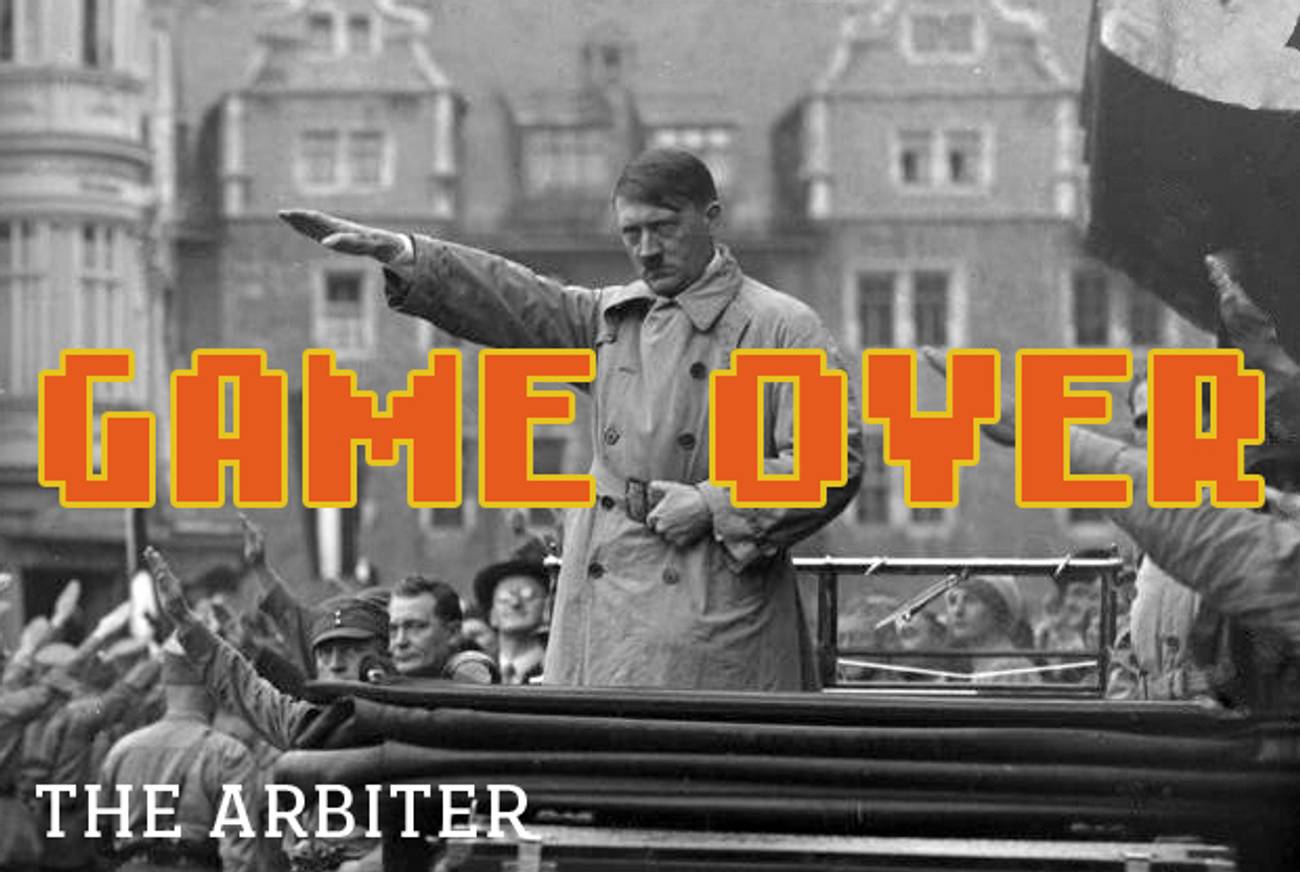Revenge of the Nerds
Video games are the medium of revenge, and for Israeli boys killing Hitler in Wolfenstein, that meant addressing some deep traumas




The Arbiter is a weekly column dedicated to revisiting canonical works of art, high and low alike, to reevaluate their merit. All media are considered; none are pitied. As an homage to the greatest Jewish guardian of memory, Marcel Proust, each is rated on a scale of one to five madeleines, with one pastry meaning the work should be forgotten posthaste and five arguing for a spirited recollection.
“Every complaint,” Nietzsche is reported to have said, “already contains revenge.”
He could have said the same about video games.
I learned the connection between gaming and vengeance when I was 17, from a classic called Wolfenstein 3D. That, at least, is the name the game’s developer, id Software, gave it; in Israel, it was known simply as the Nazi Castle. Credited with having catapulted the first-person-shooter genre to ubiquity, the game took place in a maze-like chateau occupied by various swastika-toting baddies, chief among them Adolf Hitler, outfitted with robotic armor and several machine guns. All you did was walk around and shoot Nazis.
Killing Nazis is an appealing proposition, which made the game a hit the world over. But nowhere was its appeal greater than in the Jewish state, where many of the teenage boys who fervently pounded on their keyboards in an effort to nail Nazi scum were the grandchildren of Holocaust survivors. When we played, we played in silence and in darkened rooms. We weren’t exactly sure why. To us, after all, it shouldn’t have made any difference if the pixilated enemy was a spiked-shelled beastie like Bowser, the arch-villain of the Super Mario game series, or Hitler, the very real executioner of so many of our relatives. The play experience was the same: move fast, press buttons furiously, kill, kill, kill.
Somehow, we knew better. We knew that Hitler, even robot-Hitler, was real, and it made us want to play more fervently. Curiously, we didn’t care much about completing the game’s tasks, the way we did with every other video game. All we cared about was killing as many Nazis as possible. All we cared about was revenge.
One of the game’s creators, John Romero, felt the same way. “You know what we should have in here?” Romero asked his fellow programmers in an account recalled in David Kushner’s 2003 book Masters of Doom. “Pissing! We should have it so you can fucking stop and piss on the Nazi after you mow him down!”
If only. But even without urination, Wolfenstein 3D satisfied our adolescent urges. Each level featured a powerful boss, and once each boss was defeated a so-called Death Cam was activated, playing back the moment of the kill in gorgeous slow motion and with humorous sound effects.
Before each playback, a title card flashed on the screen, reading “Let’s See That Again!” It was misleading. In reality, we were really seeing the moment of death for the first time, as the previous time we had seen it we were too busy running and shooting, too busy being to observe.
Herein lay the genius of Wolfenstein, a brilliance that hasn’t dulled with the years. It realized, instinctively and early on, that video gamers take leave of their subjectivity as soon as they grab their controllers and start playing. Once they’re in the game, they become part-avatar, seeing the game both through their own eyes and through their character’s. They lack critical distance and haven’t the ability to gaze or reflect. All they can do is move.
Which is why revenge is such a perfect theme for video games. Like very few other human emotions, revenge is the urge that can never be truly fulfilled. Try taking vengeance, and the pit you had in your stomach before the act will only give way to emptiness after it. This is because the only way to get real satisfaction would be to turn back time and undo the offending moment, which is impossible in life but is the whole point of video games, a medium that lets you play and replay a certain scenario until you master it and advance to the next level. In hanging Eichmann, our grandparents discovered how futile it had been to seek catharsis in acts of retribution. In shooting robot-Hitler, we discovered how sweet life could be if all it took to rewrite history was a personal computer and a modicum of hand-eye coordination.
Of course, none of it was real. Only our dead families were real. But for a few afternoons a week, we could step into what Johan Huizinga—the Dutch historian who died in a Nazi concentration camp a few weeks before liberation—called the magic circle. We play games, Huizinga observed, because only in games may we expect clear rules and definite results, only in games may we overcome ambiguity and regulate chance. So helpless in real life, we enter into the magic circle because it is the only place where we can, if only for a moment, order the world. This, Huizinga argued, is why games preceded culture; man, before he could do anything else, had to feel there was one realm of life in which he alone, and not some unseen and unknowable higher force, was dominant.
This is why games are so popular with children, whose sense of helplessness is acute and whose need for control, even pretend-control, is great. And this is why Wolfenstein was so popular with us offspring of survivors: In a nation built on the idea of never again, a nation whose national Holocaust commemoration museum concludes its exhibit with a recording of David Ben-Gurion reading the Declaration of Independence, there was no better way to assert control than to grab a big gun and kill Hitler.
A year or two after the game came out, my friends and I no longer had much time to play. We were now all in the army. Killing became a real-world activity with irreversible consequences, nowhere near as free and strange and magical as it had been with Hitler’s virtual goons. But we were well prepared for life as soldiers. We’d left our revenge fantasies behind, in the dungeons of the Nazi castle.
Liel Leibovitz is a senior writer for Tablet Magazine and a host of the Unorthodox podcast.
Liel Leibovitz is editor-at-large for Tablet Magazine and a host of its weekly culture podcast Unorthodox and daily Talmud podcast Take One. He is the editor of Zionism: The Tablet Guide.